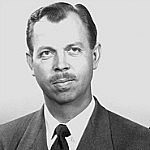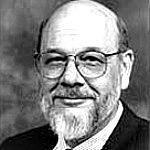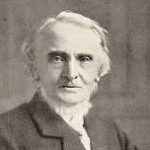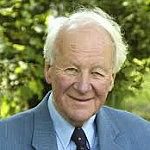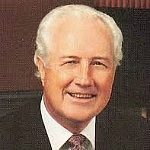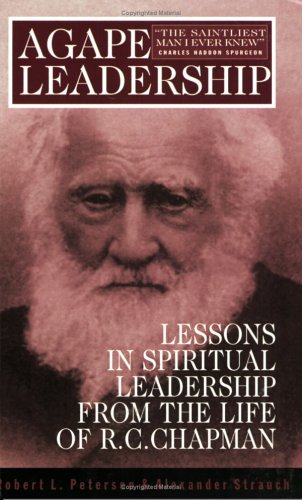Quotes about Love-Others_for
What a wonderful Savior we have. It wasn’t lovely people for whose sake He died; it was for ungodly people, for His enemies. It was for law breakers that He suffered. He loved us, says (the Apostle) Paul, in spite of how unlovely we were. Just as He loved us, Paul insists we are to love one another.
“Thou shalt love thy neighbor as thyself.” Now you love yourself suitably when you love God better than yourself. What, then, you aim at in yourself you must aim at in your neighbor, namely, that he may love God with a perfect affection. For you do not love him as yourself, unless you try to draw him to that good which you are yourself pursuing. For this is the one good which has room for all to pursue it along with thee. From this precept proceed the duties of human society.
I care not where I go, or how I live, or what I endure so that I may save souls. When I sleep I dream of them; when I awake they are first in my thoughts…no amount of scholastic attainment, of able and profound exposition of brilliant and stirring eloquence can atone for the absence of a deep impassioned sympathetic love for human souls.
Love is very much a matter of actions rather than emotions. However, although this emphasis on acts of love is certainly necessary, we can sometimes give the impression that love doesn’t involve any emotion – that it is entirely an act of the will, of one’s duty, regardless of how one feels. We can even promote the “I can love him but I can’t like him” type of attitude. The Bible does not support such an unbalanced concept of love…fervently, fondly, and affectionately (are used in the Bible) to describe the love Christians ought to have for one another… Obviously such a fervency of spirit cannot substitute for loving actions, but surely it should accompany them. We dare not settle for less.
The Practice of Godliness, NavPress, 1996, p. 209-210. Used by permission of NavPress – www.navpress.com. All rights reserved. Get this book!
Here is a spiritual principle: We cannot exercise love unless we are experiencing grace. You cannot truly love others unless you are convinced that God’s love for you is unconditional, based solely on the merit of Christ, not on your performance. John said, “We love because he first loved us” (1 John 4:19). Our love, either to God or to others, can only be a response to His love for us.
Transforming Grace, NavPress, 1991, p. 132. Used by permission of NavPress – www.navpress.com. All rights reserved. Get this book!
The second commandment: Love your neighbor as yourself. Among other things this would mean:
1. You cherish for your neighbors the very same love that you bear toward yourself.
2. In your dealings with them you never show selfishness, irritability, peevishness, or indifference.
3. You take a genuine interest in their welfare and seek to promote their interests, honor, and well-being.
4. You never regard them with a feeling of prideful superiority, nor do you ever talk about their failings.
5. You never resent any wrongs they do to you, but instead are always ready to forgive.
6. You always treat them as you would have them treat you.
7. To paraphrase 1 Corinthians 13:4-5, you are always patient and kind, never envious or boastful, never proud or rude, never self-seeking. You are not easily angered and you keep no record, even in your mind, of wrongs done to you.
Copied from The Gospel for Real Life by Jerry Bridges, © 2002, p. 27-28. Used by permission of NavPress – www.navpress.com. All rights reserved. Get this book!
You demonstrate biblical love when you take steps to restore a fellow-believer overtaken in sin. This not only encourages a fallen believer to return to his first love of Jesus Christ, but it also gives others involved in the restoration process on-going opportunities to examine the depth of their love to the Lord.
Self-Confrontation Manual, Lesson 13, Page 9, Used by Permission of the Biblical Counseling Foundation.
Our prayer must not be self-centered. It must arise not only because we feel our own need as a burden we must lay upon God, but also because we are so bound up in love for our fellow men that we feel their need as acutely as our own. To make intercession for men is the most powerful and practical way in which we can express our love for them.
You can always give without loving, but you can never love without giving.
If I can enjoy a joke at the expense of another; if I can in any way slight another in conversation, or even in thought, then I know nothing of Calvary’s love.
The perfection of God’s love, in perfect harmony with all of God’s other perfections, is inevitably displayed in different ways in the varied relationships He maintains. Similarly, mature Christian love should be nurtured as a reflection of the very being of God, in harmony with those other divine perfections we must emulate…and this love will be displayed in different ways in the very relationships we maintain.
Love and the Intoxication of the Diligent Routine by D.A. Carson taken from Love in the Hard Places by D.A. Carson, 2002, Crossway Books, a division of Good News Publishers, Wheaton Illinois 60187, www.crosswaybooks.org. Page 193.
We are to love our neighbors as ourselves – and that standard of comparison, as ourselves, is often taken as an implicit command to love ourselves. On this view, the wording not only permits self-love but commands it; it not only sanctions self-esteem but reinforces its importance. On the face of it, however, self-love in Mark 12 is merely presupposed, not advocated. To read much of the contemporary literature, evangelical and otherwise, on self-esteem is to inhabit a domain a long way removed from the second great commandment.
Love and the Intoxication of the Diligent Routine by D.A. Carson taken from Love in the Hard Places by D.A. Carson, 2002, Crossway Books, a division of Good News Publishers, Wheaton Illinois 60187, www.crosswaybooks.org. Page 188.
To love this God means, among many other things, that we will be hungry to get to know Him better; conversely, in learning His words and ways, His attributes and His glory, what He loves and what He hates, we will find that our understanding of what it means to love God, what it means to love enemies, what it means to love brothers and sisters in Christ, will all be progressively modified and enriched. Precisely because, as created, dependent, and redeemed creatures, we are called to love our Creator, our Sovereign, our Redeemer with heart and soul and strength and mind, we will be firmly led to think robustly about what He is like, how He views evil, what rights and responsibilities He gives to the state in a fallen world, His role both in making peace and in judgment, and, above all, His commitment to His own glory as God.
Love and the Intoxication of the Diligent Routine by D.A. Carson taken from Love in the Hard Places by D.A. Carson, 2002, Crossway Books, a division of Good News Publishers, Wheaton Illinois 60187, www.crosswaybooks.org. Page 187.
Moral indignation, even moral outrage, may on occasion be proof of love – love for the victim, love for the Church of God, love for the truth, love for God and his glory. Not to be outraged may in such cases be evidence, not of gentleness and love, but of a failure of love.
Love and Forgiveness by D.A. Carson taken from Love in the Hard Places by D.A. Carson, 2002, Crossway Books, a division of Good News Publishers, Wheaton Illinois 60187, www.crosswaybooks.org. Page 85.
There is nothing to be valued more highly than to have people praying for us; God links up His power in answer to their prayers.
Our job in this life is not to go off on our own and get busy, busy, busy, work, work, work, trying in vain to produce fruit. Trying to love people on our own will lead to a life of frustration. Our responsibility is not to produce the fruit of the Spirit on our own. Our responsibility is to have a relationship to Jesus Christ and to let God use us. It is a life yielded to Christ. It is a life of rest.
It’s bad enough for me to make choices that hurt my own relationship with God. How much more serious is it to be the cause of someone else deciding to sin? Not only must I choose the pathway of holiness for God’s sake and for my own sake; I must also do it for the sake of others.
Holiness, The Heart God Purifies, Moody Publishers, p. 63. Get this book!
Do you want to know that your [Christian] life is real? Commit yourself to a local group of saved sinners. Try to love them. Don’t just do it for three weeks. Don’t just do it for six months. Do it for years. And I think you’ll find out, and others will, too, whether or not you love God. The truth will show itself.
If Christ is not ashamed to indwell them I will not be slow to embrace them.
The way to open our hearts to others is by receiving afresh the grace of God and appreciating what it means: seeing our own need of Christ; coming to receive His mercy; sensing how undeserved His love for us is; remembering how He has also opened His heart to those whose hearts are closed against us. Then we will see that the heart which is too narrow to receive a fellow Christian is too narrow to enthrone the Lord Jesus Christ. But the heart that is opened to receive the grace of Christ will learn to welcome all those whom Christ Himself has welcomed.
Practical features of the expression of God’s love:
1. Love is not defined by the act, but by the character of God within the act.
2. Love precludes hypocrisy and play-acting.
3. Love is unselfish; not based on self-need or want.
4. Love is not conditioned on reciprocity or calculation of repayment.
5. Love doesn’t care who gets the credit.
6. Love is active; not merely passive or theoretical; love doesn’t loiter.
7. Love believes, trusts and expects God to overcome all things.
8. Love is directed toward people; not things, ideas, doctrines, principles.
9. Love of neighbor desires them to have everything you have, and more.
10. Love precludes resentment, covetousness, and judging another.
11. Love seeks to commend, not condemn.
12. Love is not conditioned on the lovability or action of the recipient.
13. Love is not fickle; it is unchanging and limitless.
14. Love precludes despair at the loss or absence of the person loved.
15. Love precludes favoritism and aversion.
16. Love does not engage in comparison.
17. Love is not possessive, seeking to own or control another person.
18. Love does not find its identity or life in the one loved.
19. Love is the antidote to fear and paranoia – I Jn. 4:18.
20. Love seeks the highest good of the other, with no thought of benefit to oneself.
21. Love involves self-denial, self-renunciation, personal sacrifice, humility.
22. Love is willing to suffer slights, hurts, abuse.
23. Love builds others up, nurtures, edifies; it is constructive, not destructive.
24. Love seeks to avoid grieving or offending another – Rom. 13:10; 14:15.
25. Love of one’s enemy removes his relation of power – Matt. 5:40.
26. Love precludes partiality, preference, distinction, exclusivism; it is universal and equal.
27. Love does not take the situation into one’s hand to resolve the problem.
28. Love does not preclude confrontation, opposition and discipline – Heb. 12:6; it is not always capitulatory or soft (“tough love”); cf. Matt. 10:34; Lk. 12:49.
29. Love cannot be coerced or obliged by law or moral principle and program.
30. Love is not retaliatory – Rom. 12:17; it turns the other cheek – Matt. 5:39.
31. Love does not dictate performance standards or expectations to others.
32. Love prompts one to take the initiative to be the first to act – Matt. 7:12.
33. Love dissolves the emotional blocks which keep us from sensitivity to others.
34. Love does not demand its personal rights.
35. Love excludes suspicion and mistrust.
36. Love allows one to be free to be man as God intended man to be.
If God should have no more mercy on us than we have charity to one another, what would become of us?
We ought not to expect to receive from God what we are not prepared to bestow on others.
It is this lack of love among Christians which today makes the church an insipid, lukewarm institution. People come to find affection and are turned off by our tepidity.
A Shepherd Looks at Psalm 23, Permission by Zondervan, www.zondervan.com, 1970, p. 133. Get this book!
There is nothing that makes us love a man so much as praying for him.
Do I love the world the way God loves the world, or do I love the world the way the world wants to be loved?
The Story of Love by Michael Lawrence taken from Biblical Theology by Michael Lawrence, copyright 2010, Crossway Books, a division of Good News Publishers, Wheaton Illinois 60187, www.crosswaybooks.org. Page 148.
When I have learnt to love God better than my earthly dearest, I shall love my earthly dearest better than I do now.
When I have learned to love God better than my earthly dearest, I shall love my earthly dearest better than I do now. Insofar as I learn to love my earthly dearest at the expense of God and instead of God, I shall be moving towards the state in which I shall not love my earthly dearest at all. When first things are put first, second things are not suppressed but increased.
I cannot learn to love my neighbor as myself till I learn to love God, and I cannot learn to love God except by learning to obey Him.
Love compliments and balances everything else. It is the beautiful, softening principle. It keeps our firmness from becoming hardness and our strength from becoming domineering. It keeps our maturity gentle and considerate. It keeps our right doctrine from becoming obstinate dogmatism and our right living from becoming smug self-righteousness.
Every problem that our church has ever faced can be tracked back to a lack of love.
To have the same love is to love others equally. On a purely emotional level, having equal love for others is impossible, because people are not equally attractive. Love, however, is the love of will, not of preference or attraction. It is based on an intellectual, conscious choice to seek the welfare of its object. It is because agape (love) is based on the will that it can be commanded.
The greatest charity in the world is the communication of divine truth to the ignorant.
The common good argument is extremely powerful in the Christian tradition. Indeed, it is the second greatest commandment listed by Jesus Christ: to love our neighbors as ourselves. The general principle of the common good comes down to benevolence, love, care for others, laying down personal priorities for the service of others.
Deep in our timid hearts is a desire to be loved mildly, nothing more. That way, we retain control, we set the terms, we avoid risk. Our loving God, in His ferocious intensity, will have none of it. He defines the meaning of our lives, and we are saved from our anemic loves and brought by degrees into intense loves, like His own.
The remedy is to turn back to the cross. Our Lord proved to us the redemptive power of suffering for His sake. But we have to choose it. We are constantly tempted to withdraw into self-protection and anger and defensiveness. But looking to the Lord moment by moment, we can embrace the cross with its pain and see Him use us to communicate more grace to people who aren’t even asking for it. We didn’t ask, and He suffered for us anyway. That kind of love was the only power that could get through to us. And it did.
Blog Post: A rock feels no pain, an island never cries, August 20, 2010, Used by Permission.
Nothing can ever be done in the name of love that is not done in the name of God (Austin Duncan).
If God is my portion, if God is the true source of my joy, and if it is God who will fulfill me, then I am free to be a companion instead of a consumer. That is, because of what I receive from God I can give to another person instead of always taking; I can minister rather than manipulate because of the fulfillment I get from God (Richard and Sharon Phillips).
The measure of our love for others can largely be determined by the frequency and earnestness of our prayers for them.
One sin leads to another. Failure in our love to God always results in failure in our love to our neighbor.
Gleanings in Genesis, Moody Press, 1950, p. 145.
Get this book!
Quit being satisfied with little five percent yields of pleasure that get eaten up by the moths of inflation and the rust of death. Invest in the blue-chip, high-yield, divinely insured securities of heaven. A life devoted to material comforts and thrills is like throwing money down a rathole. But a life invested in the labor of love yields dividends of joy unsurpassed and unending.
Desiring God, 1996, p. 110, Used by Permission, www.DesiringGod.org. Get this book!
Selfishness seeks its own private happiness at the expense of others. Love seeks its happiness in the happiness of the beloved. It will even suffer and die for the beloved in order that its joy might be full in the life and purity of the beloved.
Desiring God, 1996, p. 176, Used by Permission, www.desiringGod.org. Get this book!
“Love your neighbor as yourself” does not command, but rather presupposes, self-love. All human beings love themselves. Furthermore, the self-love Jesus speaks of has nothing to do with the common notion of self-esteem. It does not mean having a good self-image or feeling especially happy with oneself. It means simply desiring and seeking one’s own good.
Love is the overflow and expansion of joy in God, which gladly meets the needs of others… It is first a deeply satisfying experience of the fullness of God’s grace, and then a doubly satisfying experience of extending this joy in God to another person.
The Dangerous Duty of Delight, Copyright 2001, p. 44-45, John Piper. Used by permission. www.DesiringGod.org.
Love is the overflow of joy in God that meets the needs of others… Or to say it another way: we do not merely seek to love in order to be happy, but we seek to be happy in God in order to love.
Why I Love the Apostle Paul, Copyright 2019, John Piper. Used by permission. www.DesiringGod.org. Page 53.
Make your self-seeking the measure of your self-giving.
Loving God as Yourself – Part 2, May 7, 1995, www.DesiringGod.org. Used by Permission.
Love is an essential part of the process of salvation. It is not optional whether you love one another. No one can say, “I am saved by faith regardless of whether I love people or not.” For the only faith which saves is “faith working through love” (Galatians 5:6). Saving faith always gives rise to love and love gives evidence of genuine faith.
It is possible to speak of love toward men in such a way that God drops out of the picture It is possible to begin to justify your life solely on the basis of how much "good" you do for men. And gradually the difference between a Christian and a humanistic ethic disappears. Not because the humanist has become God-centered but because the Christian has become man-centered.
The Shepherd, the Host and the Highway Patrol, Sermon on Psalm 23, September 7, 1980. Used by Permission, www.DesiringGod.org.
“But it is clear that those two women love each other. Why should you say that is wrong?” We must accept God’s definition of love. And according to the famous “love chapter” in 1 Corinthians 13, love “does not rejoice in unrighteousness, but rejoices with the truth” (1 Cor. 13:6). The Bible repeatedly calls homosexuality, unrighteous. God is love and we must stand by God’s definition of love and not society’s definition. Furthermore, it is in love for the homosexual that we warn him or her about their relationship. First Corinthians 6:9-10, “Or do you not know that the unrighteous will not inherit the kingdom of God? Do not be deceived; neither fornicators, nor idolaters, nor adulterers, nor effeminate, nor homosexuals, nor thieves, nor the covetous, nor drunkards, nor revilers, nor swindlers, will inherit the kingdom of God.” How can we believe this verse in Scripture and then tell a gay person everything is fine? I’d say that’s extremely unloving!
Jesus, the incarnation of love and truth, knows there is nothing more loving than telling people The Truth.
Perhaps most of all, our children need to hear that we love them. And why do we love them? Simply because they are our children. Period! They do not earn our love, nor can they lose our love regardless of what they do. This is modeling the divine love of God. Why does He love us? Because He chooses to do so. The love is unconditional and not based on our performance. And the Bible says the only reason we love Him is because He first loves us (1 Jn. 4:19). And how did He show that loved? Through His own sacrifice. “In this is love, not that we loved God, but that He loved us and sent His Son to be the propitiation for our sins” (1 John 4:10). Children can easily see where your priorities are and where your love is directed.
When Christ raises the bar in the New Covenant to love others as He loves us (John 13:34-35), He provides the Holy Spirit. And that power, in the Person of the Holy Spirit is reigning in the life of every believer. As we yield to the Spirit, He bears fruit in our life enabling us to obey and hence fulfill the commandment to love one another because the fruit of the Holy Spirit is love (Gal. 5:22). Displaying this love then becomes no longer a duty or a chore, but rather the natural overflow of God’s love already in our heart vertically given, flowing back to God and horizontally from us to others.
Love considers how in advance I can build someone up. Love creatively and aggressively meets another’s need. Love thinks less of self and more of others. Love grieves when others suffer. Love put the church over personal interests. Love models devoted Christian living to be an example to others. Love desires God’s people to have strong relationships with Christ.
Love is not just emotional. Biblical love starts and continually involves the mind. The affections are merely the expression of the love. Jeremiah tells us the heart is desperately sick. If we let our affections direct our love, we’ll be no different than the world – falling in and out of love. Biblical love is also a self-sacrificial action that puts the needs of others above ourselves. Affections will never get you to that level. Additionally, biblical love only loves what God loves. Again, mere affections will never rise to that level.
Think about it. If love is the dominant mark of our lives as it should be, what does it say about us if we claim to believe the Gospel, but fail to share it with others? In other words, we acknowledge that in Christ we have abundant life and the fullness of joy (Jn. 10:10). We accept the fact that Jesus said, “I am the way, and the truth, and the life; no one comes to the Father but through Me” (Jn. 14:6). And we believe the wages of sin are an eternal death in hell (Rom. 6:23). Once again, what does it say about us if we claim to believe the Gospel, but fail to share it with others whereby they might experience the same blessings?
To be sure, it is much easier to be loving if you’re in love, but being in love is not intrinsically necessary to being loving – else the Great Commandment is a farce.
Love is power. The Holy Spirit, for the most part, works by our affection. Love men to Christ; faith accomplishes much, but love is the actual instrument by which faith works out its desires in the Name of the Lord of love. And I am sure that, until we heartily love our work, and love the people with whom we are working, we shall not accomplish much.
Winners of souls must first be weepers for souls.
[Love] your neighbors through thick and thin… Don’t seek to please them, but to please your Master; and remember, if they spurn your love, your Master has not spurned it, and your deed is acceptable to Him as if it had been acceptable to them.
A person’s life is his most precious possession. Consequently, to rob him of it is the greatest sin we can commit against him, while to give one’s own life on his behalf is the greatest possible expression of love for him (1 Jn. 3:16). This, then, is the ultimate contrast: Cain’s hatred issued in murder, Christ’s love (issued) in self-sacrifice.
In 1956 Life magazine told of the shocking death of five missionaries in the jungles of Ecuador. For several months these men had tried to make contact with the primitive Auca Indians. On their first attempt to establish a camp, they were brutally murdered! Today these same Auca tribesmen are all Christians. They are leaders of a small congregation that worships near the spot where the missionaries died. Many educators and government leaders have expressed astonishment at the miraculous change in these Indians. How did it happen? The answer lies in the love of God expressed to these people by the sister of Nate Saint and the wife of Jim Elliot, two of the martyred missionaries. Led by God who is love and not vengeance, these women were able to break down the walls of distrust. In time they were able to share the gospel with these tribesmen and see the love of Christ transform their lives.
The opposite of love is not correction but indifference.
Love is not blind, it sees more not less; but because it sees more it chooses to see less.
Christians, if they are not the most inhuman people in the world, cannot believe what they profess – that men without repentance and faith must perish eternally – or they would be more earnest in endeavoring to save them. If I believed what they profess to believe – I would scarcely cease day or night to warn others of the wrath to come.
Who are other people? They take on three different shapes: Enemies, neighbors, and family. What is our duty to them? Love. Love may take a different form with each group, but our duty is summed up as love. We love enemies by surprising them with our service toward them. We love neighbors by treating them like our family. And we love the body of Christ – our true brothers and sisters – in such a way that the world and spiritual powers are stunned by our oneness.
When People are Big and God is Small, P&R Publishing, 1997, p. 211. Used by Permission. Get this book!
But what about love and loyalty when no one else seems to be hurt, such as premarital sexual relationships? Such an argument does not apprehend biblical love. Love is not simply the absence of obvious injury to anyone. For example, critical thoughts don’t victimize, but they are unloving and wrong. Defining love in terms of whether people get hurt misses the heart of biblical teaching. We may not automatically decide what form love takes. God tells us how to love. When we love on our terms rather than His, we are in sin. Even if our sin does not seem to hurt another human being, it is still sin. If sin were reduced to hurting others, then we could become morally perfect by isolating ourselves from all people. Sin, however, is not primarily a human-against-human action. It is human-against-God. God defines love as obedience to Him.
Blame in on the Brain? P&R Publishing, 1998, p. 162-163. Get this book!
We are called to love not because other people are empty and need love (to feel better about themselves) but because love is the way in which we imitate Christ and bring glory to God.
When People are Big and God is Small, P&R Publishing, 1997, p. 147. Used by Permission. Get this book!
We need to love rather that we have a psychological deficit that must be filled with love.
When People are Big and God is Small, P&R Publishing, 1997, p. 162- 163. Used by Permission.
The path of God’s love is a path that leaves us overflowing. Our cup cannot contain what God bestows on us. It is only natural, then, that the comfort we received from Christ will overflow into the lives of other people (2 Cor. 1:3-7). Our goal is to love people more than need them. We are overflowing pitchers, not leaky cups.
When People are Big and God is Small, P&R Publishing, 1997, p. 179. Used by Permission. Get this book!
[The term] unconditional love, translated into unconditional approval… Jesus, however, can be angered and grieved by stubborn hearts (Mark 3:5). He severely rebuked His own disciples (Mark 8:33). The mind and emotions of God are His mind and emotions. His responses toward those who were both for Him and against Him were rich and lively. They cannot be contained by the word unconditional, especially when the word suggests that there is never any disapproval of a person’s behavior. If there were no disapproval of our behavior, there would have been no cross.
Addictions – A Banquet in the Grave, P&R Publishing, 2001, p. 144-145, Used by Permission. Get this book!
[Saying] “yes” might be very unwise. It might not be the best way to repay our debt of love. Saying “yes” to one task might keep us from another that is more important. It might mean that we will do something that someone else could have done better. It might mean that we will entrench the sin patterns of other people. It might mean that we interpret the church egocentrically rather than as a body, thinking, “If I don’t do it, nobody will.”
When People are Big and God is Small, P&R Publishing, 1997, p. 214. Used by Permission.
Christianity burst into a corrupt world with a brilliantly new moral radiance… The moral level of society was dismal, and sin prevailed in many forms… Into this discouraged world came Christ and His Spirit-transformed disciples, filled with holy joy, motivated by a love which the pagans could not grasp, and proclaiming Good News-the message that God has provided a Savior… The Christians lived in tiny communities knit together in the power of the Holy Spirit, little colonies of heaven. They thought of themselves as pilgrims on their way to the celestial city, but they were very much concerned to manifest the love of Christ in all human relationships.




